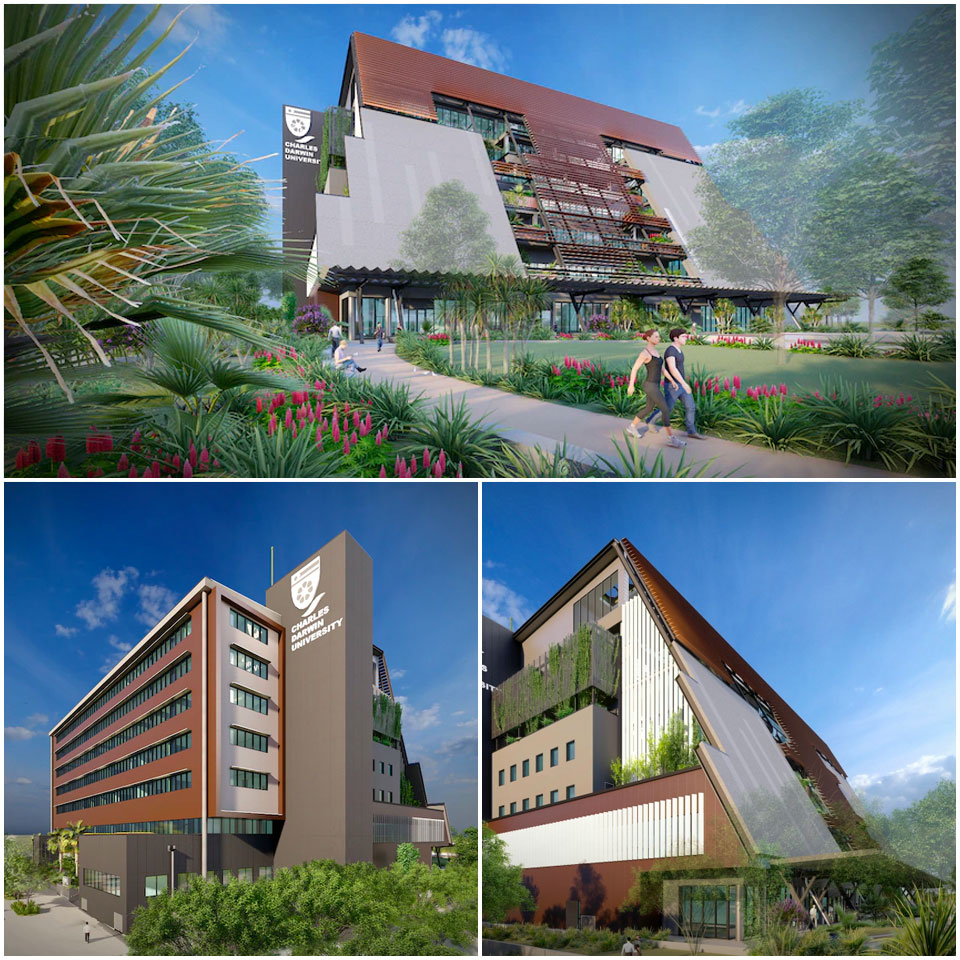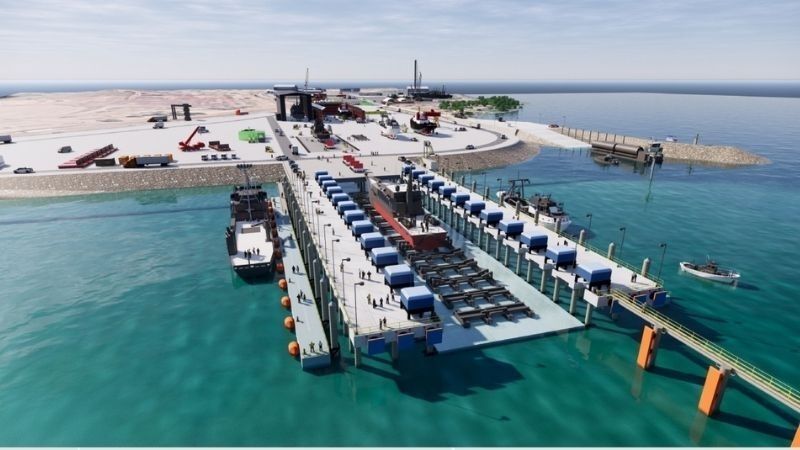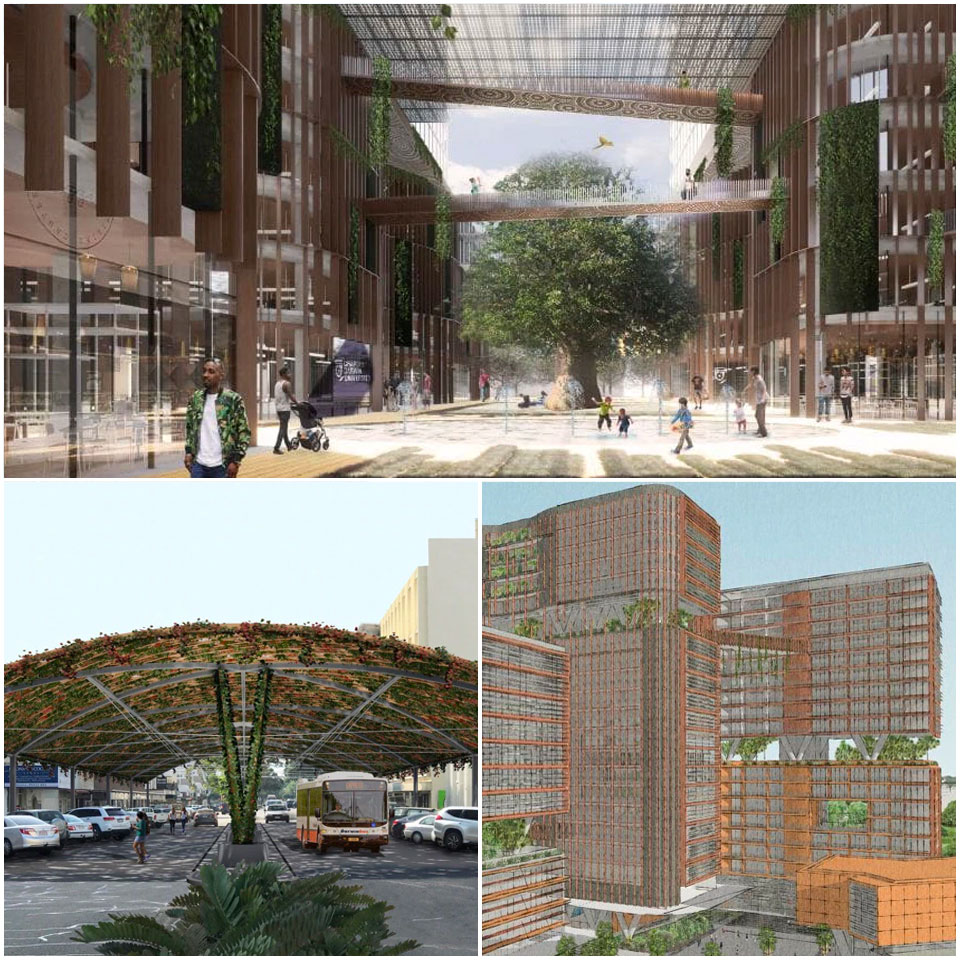HOW COMMERCIAL REAL ESTATE IS RESETTING — AND WHAT IT MEANS FOR YOU
FIND OUT HOW COMMERCIAL REAL ESTATE IS RESETTING
Resources
Newsletter
Stay up to date and with the latest news, projects, deals and features.
SubscribeWith a pub crawl by helicopter listed among its top 10 things to do, you could be forgiven for thinking that Darwin is in no hurry to shake off its frontier-town identity.
Of course, welcoming a bemused then-US President Barack Obama with a gift of “crocodile attack insurance” on his whistle-stop visit in 2011 probably left little doubt about that.
But a decade on, Darwin—a city twice destroyed, first by bombs and then a cyclone—is on the cusp of city-shaping transformation.
Public and private investment nudging $50 billion and counting is propelling a game-changing pipeline of infrastructure projects and urban development that will redefine Australia’s northernmost capital city—not just socially and economically but also in the global psyche.
That mind shift has already begun with Prime Minister Scott Morrison dubbing Darwin “one of the world’s great tropical cities”.
“Darwin has been coming of age for a long time now,” Darwin Lord Mayor Kon Vatskalis says.
“When I came here in 1993 the tallest building was nine storeys. Today I live in a building that has 32 storeys ... it’s no longer a parochial little outpost for public servants. It’s got an international airport and one of Australia’s busiest deep water ports.”
With a tender out for a feasibility study into relocating the Darwin Passenger Railway Terminal, home to The Ghan train that services the route to Adelaide, there is even talk of the city getting its first transit system.
Meanwhile, works have commenced on what Vatskalis has described as “the deal that will change Darwin”.

The Darwin City Deal, an historic agreement between three levels of government, is a major CBD revitalisation project. Its centrepiece is the relocation of Charles Darwin University from the northern suburbs to a $250-million “vertical campus” in the city centre.
“Bringing the university and more than 1000 students into town, it’s really going to activate the city centre,” he says.
“Because they will need 1000 coffees, 1000 meals, 1000 places to sleep so it actually creates this chain reaction of services required by the students.”
A CSIRO-led Urban Living Lab, which is also part of the deal, is aiming to make Darwin the prototype for how to run liveable cities in tropical areas all around the world.
Vatskalis, a former Northern Territory Labor minister, says much of the impetus for what he calls the “renaissance” of Darwin is a shift in the political gaze, nationally and internationally.
“For a long time, the focus of the Australian government was on the south,” he says. “Darwin really didn’t matter that very much.
“But thanks to China, all of a sudden now it does matter. They have woken up and realised that the north is actually our most important asset and started investing money in it.
“As they say in real estate, it’s all about location, location, location.
“Darwin is the closest Australian city to Asia and it’s important for us to have friendly relations with our neighbours and be able to respond quickly in case something goes wrong.”
Singapore and Manila are as close to the city as the southern capitals of Sydney and Melbourne. Its nearest major Australian city Adelaide is 3000km away.

Darwin’s growth is traditionally and inextricably linked to the NT’s abundance of natural resources—the biggest driver of its economic cycles—and its geo-strategic significance as a frontline defence for Australia’s national security.
The latest data indicates the slump of recent years due to the wind-down of construction of the massive $55-billion Ichthys LNG project led by Japanese company Inpex has stabilised and the territory is on the comeback.
Australian Bureau of Statistics figures show the territory recorded the nation’s largest jump in economic activity (5.3 per cent), more than double that of any other state or territory, in the June quarter.
By 2030, the NT government is aiming to achieve 30 per cent population growth and to boost its gross state product from $26 billion to $40 billion.
The growing pipeline of projects across the territory includes energy giant Santos, and its partners, pouring almost $5 billion into the Barossa Gas Project, a new offshore gas field; Sun Cable’s $30-billion plan for the world’s largest solar farm to supply up to 15 per cent of Singapore's electricity; Seafarms’ $1.5-billion Project Seadragon prawn farm now under way; the $1.1-billion Nolans rare earths mine project; the proposed $400-million Darwin East Arm ship lift to be operated by Paspaley Group; and the looming start of construction of Core Lithium’s $140-million Finniss project, the NT’s first lithium mine.
The Australian government has committed $747 million to infrastructure upgrades for the Top End’s defence bases as part of a planned $8-billion spending program over 10 years.
As well, the US—which is looking to potentially boost its rotation of 2500 Marines based in Darwin—has earmarked $2 billion in funding for future defence projects across the NT, including the largest fuel storage facility in northern Australia.
In another boon for the territory, Qantas has recently moved its flagship direct Perth-to-London flight to Darwin-to-London until at least April next year due to Western Australia’s tough Covid-prompted border policy.
Property investment also is gearing up with Queensland-based fund manager Sentinel Group Australia on the verge of sealing one of Darwin’s biggest property deals.
Already one of the largest single owners of office space in Darwin, Sentinel is wrapping up a $420-million capital raising for the acquisition of the city’s Casuarina Square shopping centre from GPT Group.

“The economy up there is really starting to go,” Sentinel executive chairman Warren Ebert says.
“The money that is going into Darwin and across the territory now is just absolutely enormous and it’s very widespread and long term, not just a sugar hit.
“There’s a lot happening and I think it’s got a couple of decades in front of it, so this is just the start of it.
“We’ve got a couple of other assets under due diligence and we’re also very keen to get into some industrial development up there.”
Urban Development Institute of Australia’s NT chief executive Catriona Tatam says despite lingering Covid-related uncertainties “there is a definite sense of economic upturn”.
“Darwin has always had a boom-and-bust cycle, but the sheer number of major projects, investment and development occurring, and intended to occur over a sustained period of time, signals that a more stable and enduring upswing beckons.
“While we are not without some issues, including staff shortages in nearly all sectors, there is a certain buzz in the air.
“House prices have risen and are back to nearly the Inpex-driven levels of 2015, several land subdivisions are planned or under way and development and investment into the NT is occurring at a rapid pace.
“Also, despite border closures, lockdowns and quarantine requirements, Darwin and other NT towns are bustling with domestic tourists.
"So, there does seem to be a lot of positivity and, with all these major projects coming online, there is this real sense of anticipation of 'Is this where Darwin finally takes off?'"
Clearly, big changes are on the horizon for Darwin over the next decade but neither Tatam nor Lord Mayor Kon Vatskalis are buying the suggestion that the city may also be facing a frontier-town identity crisis.
“We do things differently here and we seem to survive really well,” Vatskalis, a passionate Territorian, says.
Tatam, with more than a hint of satisfaction, adds: "Obviously towns grow and change and develop over time but I think just due to location and isolation Darwin will always have that little bit of wildness to it ... that's part of its charm".
You are currently experiencing The Urban Developer Plus (TUD+), our premium membership for property professionals. Click here to learn more.
